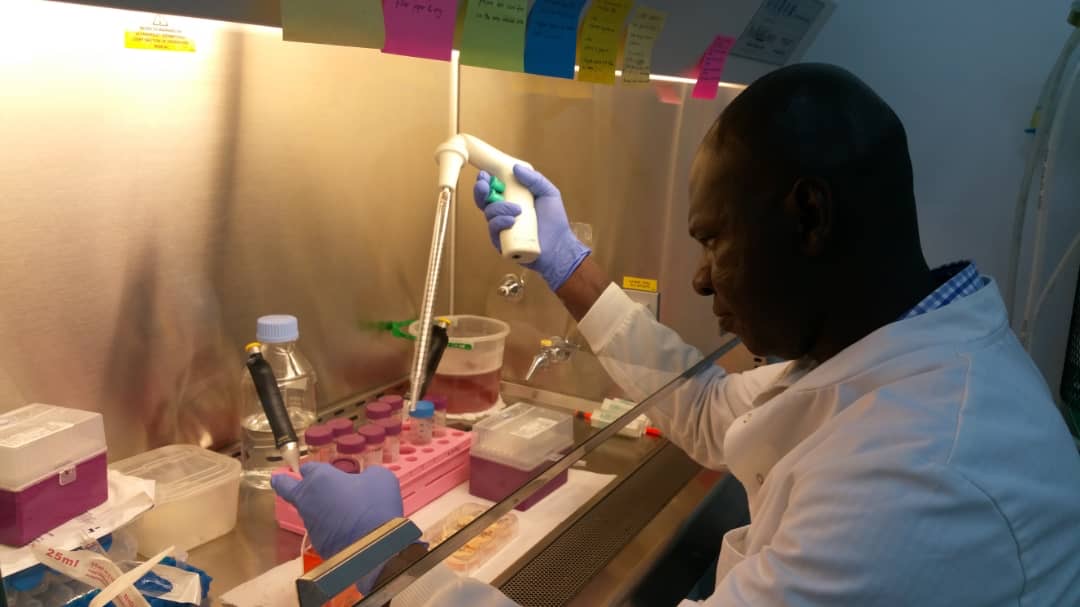Parasite Sex Ratios and Malaria Transmission in Ghana

Malaria continues to impair childhood wellbeing and economic development throughout Ghana and sub-Saharan Africa. Plasmodium falciparum parasites cause the symptoms and pathology of malaria when they develop within and spread between human red blood cells. To be transmitted from person to person, the parasite must differentiate into sexual male and female forms (gametocytes) which are then taken up by mosquitoes as they take a blood meal. The mechanisms that control the differentiation of gametocytes have been studied in laboratory samples, but are much less well understood in clinical samples. The aim of this project was to compare gametocyte phenotypes, gametocyte sex ratio and antigen expression in P. falciparum in Ghanaian clinical samples.
To study gene expression of variant antigens, including genes that might be involved in determining sex ratios, we sequenced maturing gametocytes and asexual stages from three recent Ghanaian clinical samples from Ho. The isolates were collected in Ghana, differentiated into sexual stages then total RNA was extracted. Dr. Dinko spent time at the Sanger Institute learning how to generate RNAseq libraries, and sequencing data was subsequently generated at the Sanger Institute. The data showed a significant difference between gametocytes and asexual stages derived from Ghanaian clinical samples and those from established lab adapted lines. Further analysis is ongoing. To understand the diversity of parasites circulating in our study area in Ho, Volta Region of Ghana, and how this diversity might impact on sex ratio and potentially malaria transmission, we also collected dried blood spots from 230 febrile children, including those with severe malaria. These blood spots were transferred to the Sanger Institute and sequencing was performed using a panel of highly variable single nucleotide polymorphisms. Analysis of this sequencing data is ongoing.
A final step in evaluating sex ratio determination was not done and will be addressed in the next funding opportunity. Instead, we developed a multiplex RT-qPCR assay for the detection and quantification of male and female gametocytes as well as ring stages and gametocyte sex ratios in human endemic populations. These are important in determining infectivity of individuals to mosquitoes and investigating factors influencing malaria transmission. The tool we developed is currently being used to measure whether there are gametocytes and their sex ratios in 300 febrile children. These children were sampled from 3 hospitals in the Volta Region: Ho Teaching Hospital, and Ho Municipal Hospital, Ho, and St Anthony’s Catholic Hospital, Dzodze. The children were treated with arthemeter lumefantrine and followed up 7 days later for review and to study changes in gametocyte sex ratio after treatment, as part of a major Wellcome Trust-funded project evaluating P. falciparum gametocyte antibody responses in symptomatic individuals. This tool will have multiple future applications in biological and epidemiological studies, as well as in clinical trials testing transmission blocking interventions.
Outputs of the project
This collaborative project has led to strengthening of relationship between collaborators, between UHAS and the Sanger Institute, and the extension of the scientific network of Dr. Dinko, who has initiated additional collaborations at the Sanger Institute. While data analysis is ongoing, two manuscripts being prepared as a result of the project:
- Dinko et al., Global transcriptome of immature gametocytes of African Plasmodium falciparum clinical isolates
- Dinko et al., Genetically diverse Plasmodium falciparum infections and symptomatic and severe malaria in the Volta Region of Ghana
The work was also accepted as a presentation delivered by Dr. Dinko at the Molecular Approaches to Malaria meeting in Lorne, Australia, February 23-27, 2020.
Further benefits of the project
Finally, the data and collaboration has led directly to a successful grant application to the Future Leader - African Research Independence (FLAIR) Fellowship (The Royal Society and African Academy of Sciences), with Dr. Billker as collaborator, which was awarded in December 2019 and will support his work for the next two years. Cambridge-Africa ALBORADA support has therefore played an important role in the transitioning of Dr. Dinko into an independent research.

